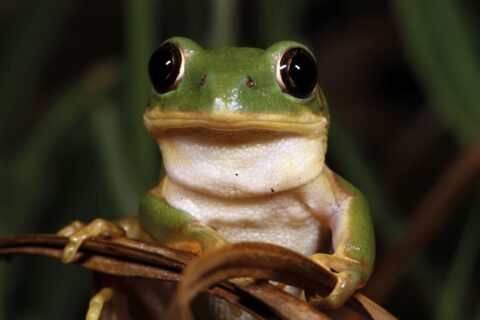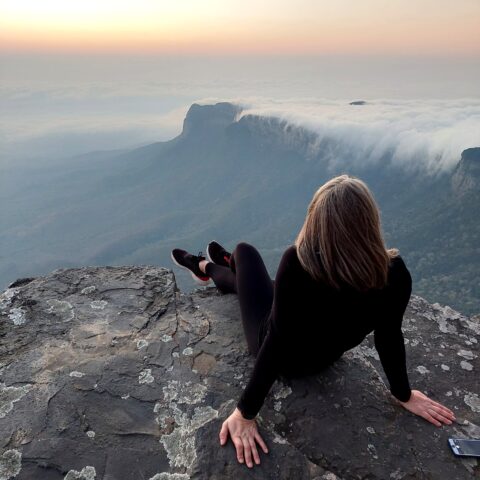Sunday Times Green PR
Alien Biomass Economy Boosts Small Businesses
Of course, there is a direct benefit to the small businesses contracted to clear the alien biomass, but there’s a larger trickle-down effect as the changing landscape inspires new businesses for other community members.
One such case is the upliftment of the amaBhaca nation via one of its daughters: Bongi Mafuya. She started her working career as an executive chef at game lodges in Mpumalanga, Gauteng and KwaZulu-Natal, but began to take an interest in the environment. So, she asked if she could spend less time in the kitchen and more in the veld.
“One week I went home on leave and realised the environment around my village was in a very bad state,” says Mafuya. “I decided I wanted to go back to my homeland and do something about it.”
Mafuya grew up in KwaBhaca – a region comprising Mount Frere, Umzimkhulu, and the surrounding areas. Mafuya noted that the soil was very degraded, and that black wattle had invaded the rivers. “When I grew up there were huge wetlands in the area,” she says. “And I realised they were no longer there.”
Mafuya left her job and started an NGO that would focus on the environment and developing the amaBhaca nation. She began by networking with likeminded NGOs in the area, consulting them and knowledge sharing as much as possible. Next, she got the schools in the area on board, adding an hour a week of environmental studies to the curriculum.
Having decided that the wattle needed to be cleared away, Mafuya consulted with the local chiefs, who set up and trained task groups of young men to cut and sell the wattle.
But that was just the beginning. Mafuya had realised that no one was rotating the rangelands correctly in the region or allowing portions to rest. So, she formed a livestock association, to take on this responsibility. “Cattle just ranged everywhere,” she says, “and the wattle was also encroaching on those rangelands, so the cattle were declining, and the system was getting weaker and weaker – it was a destructive, negative cycle. When we cleared up the wattle, the water started to flow again, and the land was restored so that the cattle could thrive.”
Healthy cattle opened up a new commercial opportunity – a cattle auction. “There was some resistance,” says Mafuya. “But we sat with the elders and helped them to understand what we were trying to do. At the first auction we only had 50 cattle, and a lot of people watching. But then they saw other people making money. So, at the second auction, we had 140 cattle, and the highest amount they sold for was R30 000. This meant community members were getting market-related prices and were no longer struggling financially.”
Mafuya took the venture to other villages. She would talk to the chiefs and explain how it all worked. More livestock associations were formed, and more people started to clear away wattle.
In the meantime, the children in the community were working hard to clean the rivers – and having to clear away a lot of dumping. So, the kids took it up with the elders, and some of the women started a recycling initiative. “One thing leads to another,” says Mafuya.
They also started restoring an indigenous forest of yellow woods, which happens to contain a burial site for the royal family. Cape Parrots began to return to the forest, just as life had begun to return to the community.
But Mafuya wasn’t done yet. She wanted to preserve the land and her people’s heritage, and she realised that eco-tourism was the way to do that. “I decided to use the rondavels we already have and get people in the community to work with us,” she says. “We now have a museum that tells the story of our people. Some of the women open their homes for accommodation. The chiefs have agreed to allow us to perform an ancient muti ceremony at our sacred lake. And I’ve trained a youth to do forest walks where he tells tourists about our history and takes them to the royal burial sites.
“We have to preserve these places,” she points out. “If we build houses all over them, then the history is gone. And now, the women no longer make grass mats – the reeds are coming back to the river, so they can make reed mats and brooms to sell to the tourists. And they are making money because they are getting orders. So, it brings income to people. It’s not just the livestock.”
A number of other small businesses have sprung up. Dried cow dung is sold as fuel for fires. The cut wattle is being turned into barriers that help to fight soil erosion. The villagers are making and selling their own amasi rather than going to town and buying the big brands. “We’re also introducing a mobile abattoir and trying a mixed breed of cattle to shift the bloodlines a little,” says Mafuya, adding that they’re looking at the viability of breeding smaller livestock too.
The livestock associations are also in partnership with Meat Naturally – a social enterprise that engages and develops the communal livestock sector to encourage sustainable use of natural resources. What many don’t realise is that 50% of the cattle in South Africa belongs to communities like the amaBhaca, but 90% of the meat that is sold comes from commercial sources. Cattle also have to be traceable – this includes details like where they were born, and a full inoculation record – before communities can benefit from selling their cattle for meat into the commercial food sector.
Today Mafuya not only continues her NGO work, but is also a training partner for Avocado Vision, where she trains communities in financial literacy and other enabling life skills. Avocado Vision is the company behind the Green Business Value Chain (GBVC) – a systemic approach to the serious challenges associated with the natural resource management sector and its relationship with land management and livelihoods.
“We have seen this approach work time and time again,” says Jules Newton, programme director for the GBVC. “Clearing aliens strengthens South Africa’s water security, but there’s also enormous benefit for the economy, and the livelihoods of the communities in the area, thanks to the businesses it stimulates as a result.”






 Sign-up and receive the Business Media MAGS newsletter OR SA Mining newsletter straight to your inbox.
Sign-up and receive the Business Media MAGS newsletter OR SA Mining newsletter straight to your inbox.